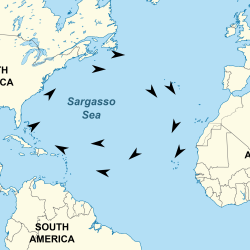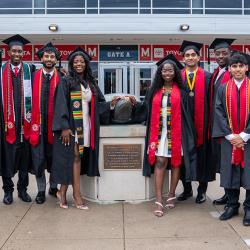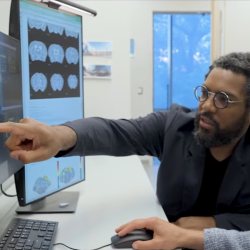Meet Victoria Fitzgerald: Thelma M. Williams Advisor of the Year Award Winner
Victoria Fitzgerald received the 2023 Thelma M. Williams Advisor of the Year Award from the University of Maryland’s College of Computer, Mathematical, and Natural Sciences. Nominated by students, this award honors a faculty or staff member who performs the service of advising undergraduate students in the college.

A student who nominated Fitzgerald for the award said: “Very few people have her spirit and energy. She deserves this award. Her life is dedicated to helping people; helping them find direction, or meaning in their life. She supports people when they may have no one rooting for them. She makes a positive and lasting impression on the people around her, and I feel that deserves to be recognized.”
Fitzgerald shared her experiences and insights as a senior advisor for the undergraduate neuroscience major in an interview with the Department of Biology.
This interview has been edited for length and clarity.
Why did you decide to become an academic advisor?
This is actually a pretty loaded question, so I will try to give you the condensed version! As a first-generation college student, and the oldest of four children, my college experience was a bit challenging. I had always wanted to be a teacher or counselor, and originally I was a psychology major with a minor in elementary education. There were some twists and turns along the way, and I ultimately dropped the education minor. I wasn’t sure what I wanted to do after college, but during my undergraduate experience, I held a variety of on-campus jobs and loved them all. Upon graduation, I looked for what was familiar, and ended up working as the assistant to the associate dean in the Office of Academic Advising for the Krieger School of Arts and Sciences at The Johns Hopkins University. It was here that I learned what academic advising was—or more specifically, what it could be! I didn’t have an advising experience like what Hopkins provided, and I saw how students benefited from the services of the Advising Office. I had never considered working in higher education as a profession until then but realized it would be the perfect way to combine my initial goals of teaching and counseling along with my own experiences and struggles as a first-gen college student. I get to help others through their own college path and be that resource that I wish I had when I was in college.
What does your day-to-day look like as an advisor for neuroscience?
My days really vary based on the time of year! On most days, I start by returning emails and phone calls. During the fall and spring semesters, I will also prep for any advising appointments I may have that day. Neuroscience has mandatory advising for all our students each semester. We currently have around 400 students who we meet with over the course of 10 weeks to discuss how their semester is going, review their graduation plans, and discuss any concerns or questions they may have. In the fall semester, our advisors also teach a section of UNIV100: The Student in the University that is specifically for Neuroscience majors. The Neuroscience Advising Office also hosts a variety of events for NEUR majors, like our Fall Welcome, Career Panels, and Study Sessions, as well as presentations for prospective students. In the summer, our main focus is orientation for all new freshmen and transfer students. We prep advising notes and schedules for all of our incoming students before their orientation. Typically we have two to three orientations a week, each lasting three hours. During orientation, we introduce students to our major, degree requirements, campus resources, etc. and then help them register for their first semester of classes. In addition to these larger advising components, we also attend regular team staff meetings as well as both CMNS and BSOS college-level meetings.
What did being selected for the Thelma M. Williams Advisor of the Year Award mean to you?
Being selected for the Thelma M. Williams Advisor of the Year Award is definitely one of the highlights of my career and a huge honor. Knowing that this award was student nominated, and that someone took the time to recognize me and my efforts was truly special. My job is centered around supporting students through college experiences, which includes their challenges and successes. This particular nomination was special because it showed that you really never know just how much your words, actions or even just sharing your time with someone truly impacts their day. It was a wonderful reminder of just how important those “outside of the classroom” interactions with faculty and staff are to the students.
What motivates you to do your job well?
I want to help students achieve their goals and see that they can be successful even when challenges arise. I use my own college experiences and personal struggles as a way to remind myself how scary, overwhelming and challenging this season of life can be. Their time at UMD will go by so fast, and I want to see our students get to enjoy it as much as possible. I want to help relieve some of the stress and pressure and help them consider ways to make the most of their college experience.
How has the neuroscience major grown and evolved over the past 3+ years since it launched?
We’ve grown from under 75 students to 400! Since we are a joint major between CMNS and BSOS, our students have the opportunity to take a variety of courses to complete their degree requirements. We are continuously reviewing courses across campus to expand our course selection. We’ve also launched the Neuroscience Honors program, a research-based honors program that allows high-achieving students to collaborate directly with a faculty member to complete an original research project. Another wonderful development has been the Neuroscience Student Ambassador program. These students serve as the faces and voices of the Neuroscience student body and assist in the continuing development of our undergraduate program. Ambassadors have the opportunity to serve as mentors, participate in recruitment initiatives, host and plan community-building and professional development events, and lead our social media initiatives.
What makes neuroscience students special?
Neuroscience students have the best personalities! They are always so excited to learn and constantly seek out new opportunities. One of the things I love most about our students is their dedication to the program’s growth and their desire to share their opportunities. They are happy to connect their peers to research and internship opportunities, share thoughts on class schedules, and genuinely want to see each other succeed.
What would you recommend to students as they navigate the neuroscience major?
Be flexible and challenge yourself. Our program offers a lot of flexibility and choice within the advanced coursework, and it is so cool to see how students’ interests change over their time in the program. You don’t have to know exactly what classes you want to take or what lab you want to work in—the Advising Office is here to help you navigate all of that!
What is the best piece of advice you like to give your students?
It doesn’t hurt to ask…Interested in a research opportunity? Then reach out and ask if the principal investigator has an opening in their lab or if they have a colleague who might. Tough week and you’re feeling behind and a little more time on an assignment might help? Reach out to your instructor and TA and see if something can be done. Want to go to grad school but you have no idea what you want to do or where you want to go? Ask the NEUR faculty and advisors! They can tell you about their own experiences, as well as those of other students. They can also get you in touch with the Career Center or others who might have some insight for you.
What is your favorite UMD memory?
At the end of the spring semester, we hold a Neuroscience Field Day to celebrate the end of the academic year and recognize our graduating seniors. Our students, faculty and staff are all invited. We have food, music, and a variety of sports and activities. This past year we even had a trivia wheel and tug of war! During our first Field Day, I secretly reached out to our student body and asked them to tell me what they loved most about our faculty and staff so that I could make “Paper Plate Awards”. I received an overwhelming number of detailed responses from our students and was able to create a silly, yet sentimental award for all of our immediate faculty and staff. I also gave each person the list of comments I received, so they could see the impact they have on our students. It was such a fun surprise and I loved seeing my colleagues’ and students’ faces as I read their award and highlighted the comments. And now, I get to say that I created a tradition for our program!
What do you like to do outside work?
I enjoy spending time with my husband Jon, children (Matthew, Gregory and Annabel), and two dogs (Raven and Terra—as in Terrapin!). They keep me pretty busy with taekwondo, rugby, basketball, soccer, track, chorus, etc. When we aren’t driving around the greater Annapolis area, we love cooking together and watching Ravens games! I joined a barbell club in January and have enjoyed lifting as a way to relieve stress and get in shape!







